IRELAND'S most outspoken commentator Eamon Dunphy on the corruption at the heart of modern Ireland and why our young people are better off in Britain.
What was your experience of Britain outside of football?
Of a much more secular society than the one I’d left. In my book The Rocky Road I make a point of saying I never hated England.
Going there was liberating for me in many ways. I found English people to be very nice, very human, tolerant, and non-judgemental.
I never suffered from any prejudice because I was Irish from ordinary people but maybe the big shots in football didn’t like me wearing an armband on Bloody Sunday, going on anti-apartheid marches or agitating for players’ rights.
But that wasn’t because I was Irish. They wouldn’t have liked it whoever was doing it. But I think for generations Irish people have had to leave and they are leaving now.
They have just introduced something in the Budget where they are giving unemployed people under the age of 25 e100 euros a week.
How the f**k can they live on that? They are trying to get rid of them. It’s an emigration policy they have. They will be able to get work and dignity in Britain and that’s what I got as well.
Did you become more patriotic after you left?
Probably not, but certainly a nostalgia for certain things at home, like music, the folk revival that happened while I was away in the ’50s and ’60s, Luke Kelly, The Clancy Brothers, all of that.
As I grew up I began to appreciate wonderful things about Ireland and I still believe the ordinary Irish person to be fantastic.
There are wonderful things about Ireland, but the wonderful things are the people. Their warmth, friendliness, the music, the craic and the humour you get which is very different from England but it’s nothing to do with the ruling class.
What did you enjoy about British life?
I loved the BBC. I loved the range of newspapers, from The Sunday Times to The Guardian to The Mail and The Telegraph.
There was a vast spread ideologically. There were some great writers regardless of their opinions.
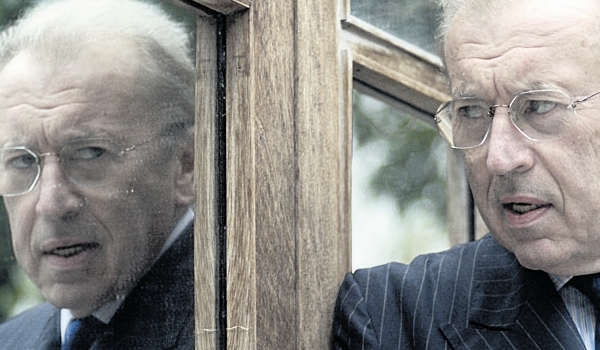 Sir David Frost
Sir David FrostLike who?
There was a great historian, A.J.P Taylor, who was a very eminent Englishman. Malcolm Muggeridge was another very eminent journalist, philosopher-type who was often on television talking about everyday life.
I thought there was much more depth and intelligence to those guys than you’d get here. Robin Day was outstanding.
I was there when David Frost started That Was The Week That Was. The 1960s and ’70s were very fertile intellectually.
There was very fertile stimulation there in all forms of media, television, radio and print journalism. It was a golden era really.
How important was your exposure to that?
Very, because I had heroes in people like Richie Benaud who was a cricket commentator and a writer as well.
He would have been one of those people I admired greatly and Danny Blanchflower who wrote a column in The Sunday Express, he was very influential also.
So it did influence me a lot and I always loved journalism anyway. I read The Guardian for many years and then I gave up.
Why?
I swung to the right (laughs)? No, after the turmoil of the ’70s, the miners’ strike, the three-day week, England went mad and it became a very difficult place to live in.
That’s why Margaret Thatcher got elected. They made it a very tough place for working class people but it was working class people that really swung Margaret Thatcher’s way, contrary to popular opinion.
So I gave up The Guardian at some point but I went back to it again periodically. That’s the way I am, I’m intellectually curious.
Where is the standard at in Britain now?
I think standards are still much higher in England than they are here. It’s maybe not a golden age but still you can buy a newspaper and find really good writing.
David Walsh is one of the best sportswriters in Britain, if not the best. David and I were colleagues at the Sunday Independent.
Paul Kimmage is a wonderful journalist also. It’s not all one-way traffic. We have had some outstanding Irish sportswriters in recent years, Tom Humphries in The Irish Times, among them.
Why did you return to Ireland?
I went back to do the Shamrock Rovers thing (with John Giles), a great club, that was the basic idea.
We had the sense in 1977 that Ireland was a modern, young, prosperous country. It was an illusion of course.
...and quite difficult to compare with Britain?
Oh yeah, it was a much more provincial place but that was comforting in its own way. I also got to see my parents again and my brother and my family, so it had its appeal.
But the idea it had changed greatly was an illusion. We weren’t there very long before the recession in the ’80s set in.
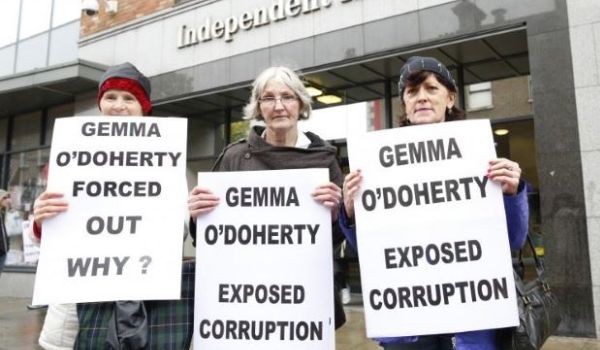 Protesters outside Independent House
Protesters outside Independent HouseWhat’s the big difference now?
If you get caught doing something wrong in England you get punished, like the former Cabinet minister Chris Huhne, and his wife (jailed in March for perverting the course of justice, in respect of a traffic offence, when Vicky Pryce took speeding points for her husband).
If that happened in Ireland there wouldn’t be a hope in hell that they would serve one day. It wouldn’t have even got to court.
There’s a penalty points scandal here now and the Garda Commissioner is one of those who has had his points deducted. It’s a jungle here. There’s no law. All kinds of people, politicians, footballers, guards, journalists, everybody.
Chris Huhne and his wife were both major establishment figures. I just feel if you do wrong, you should be punished and I think that Plebgate story, the phone hacking scandal, the parliamentary committees you have in Westminster, all of that, we don’t have any of that.
We couldn’t have called Rupert Murdoch and his son up. We couldn’t have got to the bottom of the phone hacking.
We don’t have the institutions or the will. We just don’t live in that kind of democracy. We don’t have a democracy. It’s a total and utter sham here.
They are not even pretending it’s a democracy. It’s so appalling it’s frightening.
But it’s not so appalling that it becomes impossible for you to live there?
No, but it’s a rotting, stinking place for people who are sick and old and need care, with gangsters walking the streets or sunning themselves on yachts.
It’s a stinking fester on the Western world. I know every country is corrupt but nothing approaches this place it’s rotten and you see it every day.
Have you made peace with that?
No. You don’t have to make peace with it, but in Volume 2 of my book I will try and address it.
Why don’t Irish people rise up?
Well their representatives are in the loop with the big boys. That’s why. It’s no secret, and most of the journalists are in the same loop.
It’s a rotten society. The penalty points issue.
Why do you think people are not exercised by that?
I think people are exercised by it. I think after 800 years of fighting the law and finding it oppressive, a certain subversive gene takes hold.
Anybody in authority is an enemy and I think there is something of that mentality here.
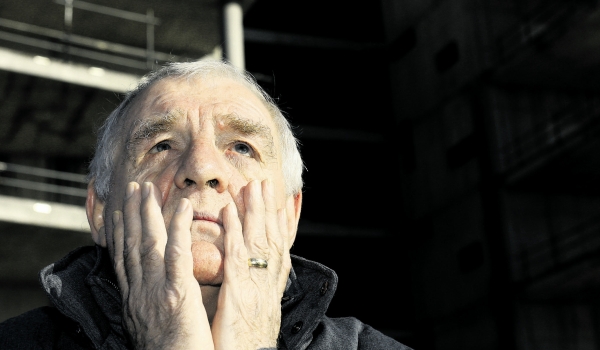 Straight talking Eamon Dunphy
Straight talking Eamon DunphyWhat about the obligations of the media at home…in a recent interview you bemoaned the standard of journalism in Ireland.
Yeah, it’s pretty grim.
Why do you say that?
I say it because I think everyone here feels an awful fear and despair about how poor much of the journalism is.
What comes out of these schools and colleges are careerists and I think the best preparation for journalism is life rather than college.
The best and the brightest would not be attracted to journalism today. But post-Watergate, journalism was sexy for a while and very fertile in America in the ’60s.
People wanted to be Norman Mailer or Hunter S Thompson, or Tom Wolfe. These people were very influential on me and there is no one of that calibre here today; maybe Jeremy Paxman.
Does the decline make you sad?
It does make me sad because I think journalism is part of the life-blood of any community and if you take it away or you diminish it, then that community is diminished as well.
Does society hold what journalists do as important anymore?
That’s a good question, but when it’s gone they will miss it that’s for sure. Who’s going to hold the powerful to account then?
Does the nod-and-wink culture that can exist in politics ring true in journalism?
To some extent it does, to some extent.
Who do you respect?
There are certain journalists, John Waters would be one of them, Frank Connolly was a great reporter but they took Frank out, Harney and McDowell and Bertie.
There are people who are very good at what they do, Dan O’Brien, the economics editor of The Irish Times, he was excellent.
Paul Kimmage with the Sunday Independent, he’s an excellent sports writer. It’s not that nobody is any good, but I’d be thinking more about who is going into it now.
Maybe I’m being a bit too nostalgic but the standard of journalism in Ireland has never been anywhere close to the standard in Britain.
But I also think that of politics.
What would your life have been like had you not come back to Ireland?
I don’t think about that at great length but I certainly think about it.
Would you have been happy to continue living in England?
Yeah I would have been. I tend to be a happy guy. I was lucky when I got home. I got jobs and people were good to me at certain times in my life.
I have been extremely fortunate, therefore I wouldn’t be whinging. I made a life for myself and my children. But I love England. I’m an Anglophile.
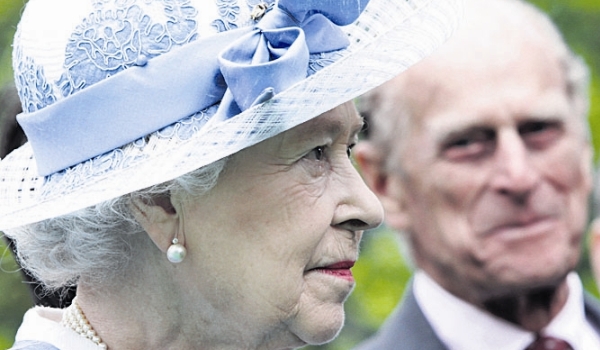 Queen Elizabeth II
Queen Elizabeth IIOn what level?
I like the intellectual vibrancy of the place. I love the countryside. I love English pubs which unlike Irish pubs are quite lovely, beautiful atmosphere, the countryside in places like Kent or Sussex, Devon, Cornwall, beautiful and rich.
I like the people very much indeed. I like the Queen. I’m a big fan of the Queen. I thought it was great when she came to Ireland.
I didn’t think you would be a fan of monarchy in any form?
Well, I’m not in theory, but I have huge admiration for the Queen. I can’t explain it, just the way she conducts herself, her good humour, her love of horses, which I love myself.
I think she is wonderful. I totally accept the larger point. Unfortunately we live in a Republic and these people live in a country where there are rules. There are none here.
Of course I don’t go along with the baggage that goes with her. It’s just her.
Do you have any optimism things will change?
No. None. Zero. It’s the establishment here, official Ireland, that’s where the stink is coming from.
What about your grandchildren’s generation?
No, I’d love them to leave. If my kids were young enough and able to, I’d love them to leave. It’s a terrible class-ridden dump. I
t’s worse than it was in the ’50s and the ’40s because at least no one had e500k of mortgage debt.
What’s your proudest achievement in journalism?
The Last Word radio programme on Today FM. We did that with Stuart Carolan who is now the writer of Love/Hate. He was my producer and he wrote the comedy.
Those five years were the best thing I did and the toughest. We had no resources, no back-up, just five people in a room up against the might of RTÉ.
But we built it up to be the best drivetime show in the country and the first current affairs programme in the commercial sector that ever worked.
It saved Today FM and established that you could make a news and current affairs programme in the commercial sector and take on RTÉ.
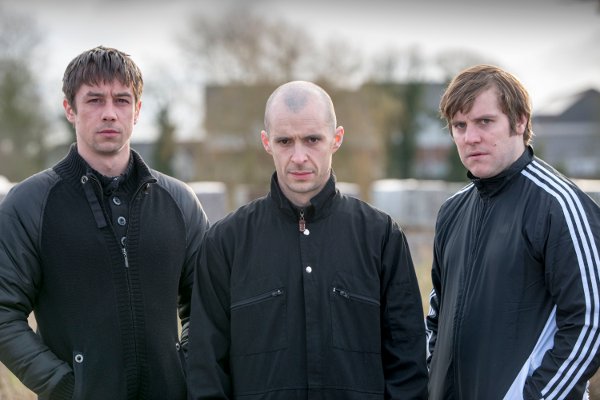 Love/Hate was created by Dunphy's former producer, Stuart Carolan
Love/Hate was created by Dunphy's former producer, Stuart CarolanWhy do you think it was successful?
Because we had a good team of people and because we went about it intelligently. We didn’t pander to any lowest common denominator, we respected our audience.
We had people like Robert Fisk, Eamonn McCann, Geoffrey Wheatcroft. We had Martin McGuinness and Billy Hutchinson.
We didn’t go left or right and we had a very good programme. I think we were true to the profession of journalism in its purest sense.
We did campaigning stuff about corrupt guards in Donegal with Frank Connolly.
We did the Hepatitis C story night after night for months back then when Michael Noonan was persecuting Bridget McCole when he was Minister for Health.
We campaigned on that and in the end the women won and our programme achieved that single handedly.
Is there any show doing comparable work now?
No. At the moment there isn’t. We worked hard every day and we partied a bit as well. I got a bad reputation for being the Keith Richards of Irish radio.
That was necessary. But I survived.
Eamon Dunphy’s autobiography The Rocky Road is available in all major bookshops.

